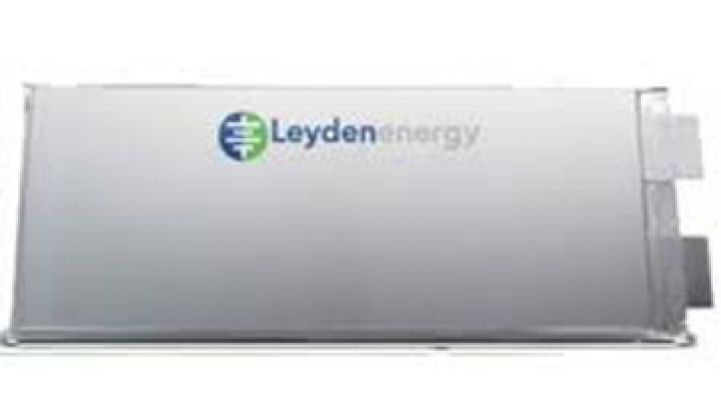Battery maker Leyden Energy has landed $20 million more in funding and, perhaps more importantly, its products will soon be featured in mainstream consumer goods.
At least one top-tier electronics manufacturer has agreed to insert the company's batteries into a tablet, said vice president of business development Nick Cataldo. Another tablet manufacturer may soon do the same as well.
It's a major step. Most electronics makers prefer to deal with established vendors like Panasonic or Sony. Sometimes, the customer and the battery maker are the same company. Leyden signed production supply agreements last quarter and started shipping products in volume this quarter. It already announced that it was selling batteries for add-on battery packs for notebooks to Canada's Dr. Battery. That was a nice proof point, but getting into finished products is a more impressive step.
The company's total funding now comes to $38 million. NEA became a new investor in this round. Previous investors included Lightspeed Ventures.
The Fremont, California-based company produces lithium-ion batteries with an electrolyte based around a family of salts called IMIDE. Most other batteries use PF6-based electrolytes. While you probably don't know the difference between these chemical families, the difference to a lithium-ion battery is huge, CEO Aakar Patel told us back in May.
The electrolyte -- a liquid that carries charges between the anode and cathode in a battery -- in standard batteries degrades the cathode over time. The chemical reactions caused by the electrolyte also cause gases to be emitted. These gases, which are contained inside the battery canister, can cause as much as 80 pounds of pressure to build up inside a battery.
Leyden's electrolyte doesn't have the same effect. It can also tolerate high temperatures. The electrolyte can be heated to 300 degrees Celsius. Conventional lithium-ion batteries experience degradation at 80 degrees Celsius, which forces battery makers to keep internal temperatures down in the 40-degrees-Celsius range. Put another way, Leyden's batteries will have the performance of lithium cobalt batteries, the kind found in notebooks, with the safety levels found in lithium phosphate batteries.
"We can pack more active materials into a finite space," he said. "We reduce the gassing through the use of a new salt."
The more inert, less volatile nature of the electrolyte will also allow Leyden to move from making cylindrical batteries with their characteristic hard case to polymer batteries, which are more like flexible sacks filled with chemicals. Polymer batteries give designers freedom to pack battery material into voids and other spaces inside their products. The battery pack can be designed around a car or another product: now, designers have to make sure their designs accommodate the shape of batteries.
Tablets thus make sense as an initial application because space for batteries is confined. Additionally, tablets are relatively new devices and the design conventions haven't yet been set in stone. Cataldo said that over the long term, Leyden will seek out contracts for grid storage.
Some of Leyden's technology comes from a technology license from DuPont, but the company has amplified those core patents with work of its own.
The name comes from a Leyden jar, which stores static electricity. German Ewald Georg von Kleist and Dutch scientist Pieter va Musschenbroek invented it at around the same time in 1745. Musschenbroek worked in Leyden.



